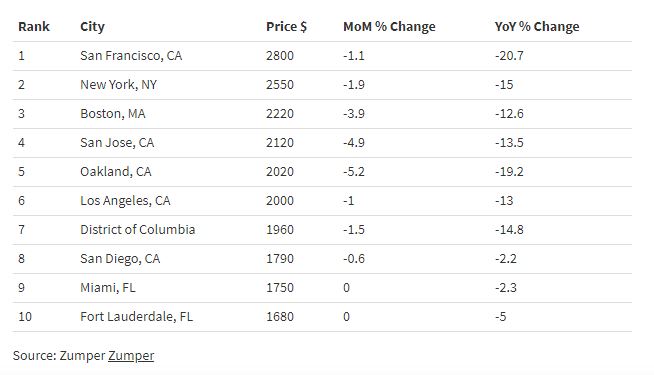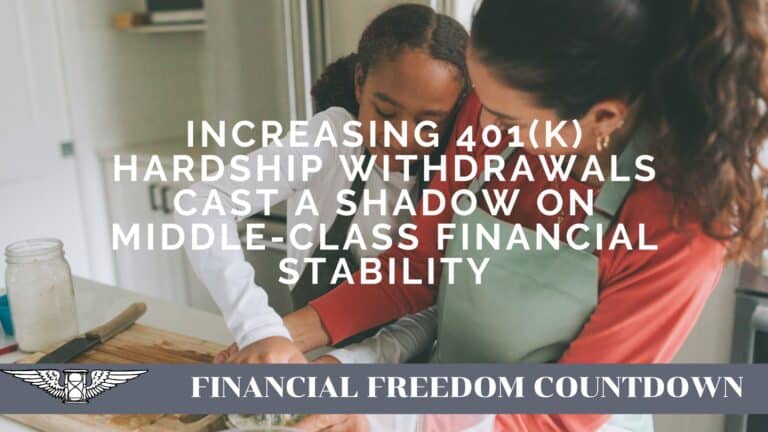High Rent City Exodus: Pivot Guide For Real Estate Investors

I have a confession to make. I am not a real estate investor. I am not a stock or bond investor either. I am a money investor. When I look at my net worth, it is distributed across stocks, bonds, real estate, cryptocurrency and several alternative assets.
A common mistake most real estate investors make is that they get married to an asset class. Or a particular strategy. And never change when the market conditions change.
Don’t get me wrong. I know that real estate is one of the best passive income-producing assets to own on a risk-adjusted basis. The ability to leverage, coupled with the favorable tax treatment, provides outsized returns for real estate investors. I own a primary and a rental in one of the most expensive cities in the U.S. Logging into my Stessa Dashboard when equity markets are volatile; helps me sleep at night.
However, real estate suffers from a drawback. Investments in real estate are not liquid. Unlike other paper assets, you can’t liquidate your real estate investments at the click of a button. Also, government mandates at a local, state, and federal level makes it a tricky asset to own. Consequently, you need to monitor the current conditions of the real estate market in your local area and the broader macro trends to ensure safety of your real estate passive income.
Changing Trends Due to Popularity of Remote Work
As a result of the popularity of remote work, two clear trends have emerged.
Urban Centers: Rent Drops and Outward Migration
The technology trends have accelerated. More and more people continue to work from home. Consequently, the rents have dropped drastically. The chart from Zumper shows the Top 10 priciest U.S. rental markets and the YoY% change.

If you had purchased real estate with certain rent assumptions, would they still hold good going forward? What happens to the rents when the employers in your neighborhood start moving away?
Eviction Moratoriums: Federal and State Government
Some states are more tenant-friendly, and some are more landlord-friendly. This distinction was quite evident to real estate investors. I would be the first to admit that California, mainly the San Francisco market is not landlord-friendly.
The eviction moratorium by various governments enacted in 2020 meant that even landlord-friendly states were not immune. The entire experience made me risk-averse, and I talked about why a rental property is now a challenging investment.
Loss of income has resulted in renters having lower rent affordability.
Pivot Guide for Real Estate Investors
Here are some steps you can take right now to reduce the loss of non-paying tenants or lower rent.
Refinance
The Federal Reserve has been lowering interest rates. Today we have low real yields comparable to high inflation periods and yet; a stable core CPI and low inflation expectations.
Mortgage rates have been the lowest in a long time. The 15 year and 30-year fixed-rate mortgages are quoted lower than during the 2008 housing crash.
Refinance any debt to lower interest costs. Although rates are not expected to rise, it might be better to lock any variable interest loans to the lower fixed-rate loans. If interest rates fall further, you can always refinance again.
Tax Planning
Have a meeting with your CPA to explore additional tax saving strategies. A lot has changed in the tax code with the passage of the Tax Cut and Jobs Act from Opportunity Zones to QBI deduction for rental property.
In the past, when times were good, it was easy to overlook tax savings. But now, with reduced income, getting aggressive on your taxes could help your bottom-line.
Out-of-state rentals
Investors who have assets in high rent urban centers should consider the changing market dynamics. The move to smaller, rural, and suburban communities is a real phenomenon, and investors need to think about their options.
Companies moving to a remote working environment would lower the salaries by having the option of hiring workers in different geographies. As a result, the location premium of wages would reduce, and consequently, the rent would drop.
With companies being fully remote, they would no longer need to occupy office space in high rent urban centers. There are opportunities when companies set up headquarters in other geographies. In the past, I have relied on crowd funded real estate. However, after losing money I have become better at evaluating real estate crowdfunding deals.
When Amazon first moved in, Seattle wasn’t even near the top of America’s priciest housing markets. Today, it is one of the top five housing markets. We can see this phenomenon play out when Amazon starts hiring for HQ2 in Northern Virginia.
Real estate investors like me who have always invested where they live; should be open to out-of-state rentals. Being a remote landlord comes with its own set of challenges, but we need to adapt. I plan to use my proceeds from the cash-out refinance to buy a few out of state properties.
Furnished Rental
The eviction moratoriums in most cities have not impacted furnished rentals. The furnished rental market consists of higher-income professionals. Often, the employer pays the rent, or the professionals need a place to stay before they buy their own house. Some of my best renters have been former home buyers who relocated here for a job.
Traveling nurses are another group of tenants who prefer furnished rentals. They have high paying jobs and employed in a recession-proof industry. Explore options to convert your rental into a furnished rental attracting a different type of tenant.
Workshop and makerspace conversion
A lot of individuals are now looking to diversify their income streams. Some individuals like my friend Betty have created an entire online business. Others opt for a combination of online and offline business, such as selling on Amazon, Etsy, etc. If your property has lots of self-storage space or can be modified to cater to these individuals, you could have options for a broader range of tenants.
Pivot Guide For Real Estate Investors
The real estate market is continually changing. As investors, we need to recognize trends and be ready to make the appropriate changes. Some of these changes could be temporary. Others could be more long-term requiring a transformation of our entire business model.
Readers, how has the real estate market changed in your neighborhood? What changes will you make to your investment strategy?
I originally wrote this article for Stessa. It has been republished with permission.

John Dealbreuin came from a third world country to the US with only $1,000 not knowing anyone; guided by an immigrant dream. In 12 years, he achieved his retirement number.
He started Financial Freedom Countdown to help everyone think differently about their financial challenges and live their best lives. John resides in the San Francisco Bay Area enjoying nature trails and weight training.
Here are his recommended tools
Personal Capital: This is a free tool John uses to track his net worth on a regular basis and as a retirement planner. It also alerts him wrt hidden fees and has a budget tracker included.
Platforms like Yieldstreet provide investment options in art, legal, real estate, structured notes, venture capital, etc. They also have fixed-income portfolios spread across multiple asset classes with a single investment with low minimums of $10,000.





This a great deal of information, but it will be greatly appreciated if it can be translate into my native language (SPANISH)
This is such a great post and description of how the pandemic has changed the renting and real estate landscape as we know it. To your point about refinancing, I’ve actually refinanced my home mortgage recently as well, and will likely be able to save over $30k over the mortgage’s fixed term period (30 years).
I am sure the pandemic will continue to leave a lasting impact.
Thanks for sharing!
The Millennial Money Woman
$30K savings is great! If rates drop further, you can again refinance. Glad you found the article useful.